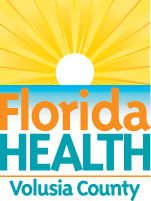MOSQUITO-BORNE ILLNESSESALERT UPDATE ~ Human Case of Dengue Virus Infection Confirmed~
October 20, 2022
MOSQUITO-BORNE ILLNESSESALERT UPDATE ~ Human Case of Dengue Virus Infection Confirmed~
Media contact:
Wendi Jackson, Public Information Specialist
chd64pio@flhealth.gov
Volusia County, Fl. – The Florida Department of Health in Volusia County (DOH-Volusia) remains under a mosquito-borne illness alert due to the identification of a locally acquired case of Dengue in a Volusia County resident. The locally acquired case was linked to household individuals with recent travel to a dengue-endemic area.
Dengue is a virus spread through mosquito bites through the Aedes mosquitoes. Dengue can present as a severe flu-like illness with severe muscle aches and pain, fever and
sometimes a rash. Usually, there are no respiratory symptoms. Symptoms of Dengue will
appear within 14 days after being bitten by an infected mosquito. Most people infected with Dengue have mild or no symptoms. Those that do develop symptoms recover after about one week. If you or a family member develop the mentioned symptoms, visit your health care provider.
DOH-Volusia continues to advise the public to remain diligent in their personal mosquito protection efforts by remembering to “Drain and Cover.”
DRAINstanding water to stop mosquitoes from multiplying.
- water from garbage cans, house gutters, buckets, pool covers, coolers, toys, flowerpots or any other containers where sprinkler or rainwater has collected.
- old tires, drums, bottles, cans, pots and pans, broken appliances and other items that aren't being used.
- birdbaths and pet's water bowls at least once or twice a week.
- boats and vehicles from rain with tarps that don’t accumulate water.
- swimming pools in good condition and appropriately chlorinated. Empty plastic swimming pools when not in use.
COVERskin with clothing or repellent.
- Clothing- Wear shoes, socks, and long pants and long-sleeves. This type of protection may be necessary for people who must work in areas where mosquitoes are present.
- Repellent- Apply mosquito repellent to bare skin and clothing.
- Always use repellents according to the label. Repellents with DEET, picaridin, oil of lemon eucalyptus, para-menthane-diol, 2-undecanone and IR3535 are effective.
- Use mosquito netting to protect children younger than 2 months old.
Tips on Repellent Use
- Always read label directions carefully for the approved usage before you apply a repellent. Some repellents are not suitable for children.
- Products with concentrations of up to 30 percent DEET (N, N-diethyl-m-toluamide) are generally recommended. Other U.S. Environmental Protection Agency-approved repellents contain picaridin, oil of lemon eucalyptus, para-menthane-diol, 2-undecanone or IR3535. These products are generally available at local pharmacies. Look for active ingredients to be listed on the product label.
- Apply insect repellent to exposed skin, or onto clothing, but not under clothing.
- In protecting children, read label instructions to be sure the repellent is age appropriate. According to the Centers for Disease Control and Prevention (CDC), mosquito repellents containing oil of lemon eucalyptus or para-menthane-diol should not be used on children under the age of three years. DEET is not recommended on children younger than two months old.
- Avoid applying repellents to the hands of children. Adults should apply repellent first to their own hands and then transfer it to the child’s skin and clothing.
- If additional protection is necessary, apply a permethrin repellent directly to your clothing. Again, always follow the manufacturer’s directions.
COVER doors and windows with screens to keep mosquitoes out of your house.
- Repair broken screening on windows, doors, porches, and patios.
For more information on which repellent to choose, consider using the Environmental Protection Agency’s search tool to help you choose skin-applied repellent products.
The Florida Department of Health continues to conduct statewide surveillance for mosquito-borne illnesses, including West Nile Virus, Eastern Equine Encephalitis, St. Louis Encephalitis, Malaria and Dengue. For more information on mosquito-borne illnesses, visit the Florida Department of Health online or call the Florida Department of Health in Volusia County, (386) 281-6423.
About the Florida Department of Health
The Florida Department of Health, nationally accredited by the Public Health Accreditation Boardworks to protect, promote and improve the health of all people in Florida through integrated state, county and community efforts.
Follow us on Facebook, Instagram and Twitter at@HealthyVolusia. For more information please visit www.FloridaHealth.gov




Connect with DOH